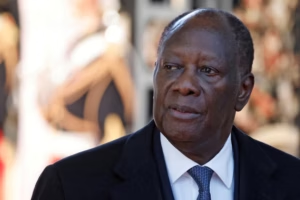
The US Treasury’s recent conclusion that Ethiopia is no longer engaging in a “pattern of gross violations of human rightsâ€, based on State Department assessments, has divided opinion among experts and activists.
The Biden administration’s decision to lift its designation of Ethiopia as a human rights violator was made late last month and revealed after Foreign Policy magazine obtained the Treasury Department memo.
The move opens the door for the Biden administration to normalise relations with Ethiopia, including resuming economic aid and restoring the East African country’s membership of the African Growth and Opportunities Act (AGOA), a preferential trade pact.
These were suspended amid reports of gross human abuses during the two-year war centred on Tigray, which formally with a ceasefire last November.
The US also threatened sanctions for individuals violating human rights and blocking efforts to end the war – although it only ever imposed six sanctions, all of them on Eritrean officials or organisations – and it blocked international financial institutions (IFIs) such as the IMF and African Development Fund from giving Ethiopia financial assistance.
“Treasury will stop instructing the relevant US Executive Directors at the IFIs to oppose any loan, any extension of financial assistance, or any technical assistance to Ethiopia,†according to the memo.
Murder, rape, sexual violence
The war in northern Ethiopia killed hundreds of thousands of people, many of them civilians.
A UN panel of experts has said all parties committed abuses, some of them amounting to war crimes. In March, the US State Department reached a similar conclusion when it released a report that said both sides, including Ethiopia’s military, were responsible for crimes against humanity “including murder, rape, and other forms of sexual violence, and persecution.â€
During a visit to Addis Ababa that month, US Secretary of State Antony Blinken said Ethiopia needed to do more to implement the ceasefire, such as ensuring “there are no ongoing gross violations of human rights†and establishing an “inclusive and credible†transitional justice process.â€
“Then our own ability to move forward on our engagement with Ethiopia, to include economic engagement, will also move forward,†he said.
Just a few months later, that stance has been reversed.
This has been welcomed by the state-appointed Ethiopian Human Rights Commission (EHRC). The Biden administration’s view that human rights are no longer being seriously violated in Ethiopia is “accurateâ€, says EHRC director Daniel Bekele.
Legitimising abuse?
“Economic sanctions on Ethiopia have done nothing but worsen the humanitarian situation for the most vulnerable,†Daniel tells The Africa Report. “Restoring (the) full spectrum of economic and development support to Ethiopia is a step in the right direction.â€
When the Biden administration suspended Ethiopia from AGOA, Addis Ababa pushed back hard, launching a slick public relations campaign that claimed it threatened the jobs of thousands of women who worked in the country’s garment industry.
Befekadu Hailu, director of the Centre for Advancement of Rights and Democracy (CARD) in Addis Ababa, says the human rights designation was a crude tool that hit Ethiopia’s poor the hardest while also doing adds that it did little to stop human rights from being violated or force the government to the negotiating table.



